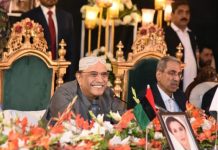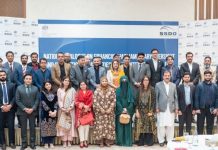editorial published on Aug 13, 2025
Former foreign minister and senior Pakistan Tehreek-e-Insaf (PTI) leader Shah Mahmood Qureshi has been acquitted in cases related to the May 9 incidents, even as other prominent figures from his party have received heavy prison sentences.
According to court decisions announced this week, PTI leaders Mian Mahmood-ur-Rashid and Sarfraz Cheema were each handed 10-year jail terms, while women leaders Alia Hamza and Sanam Javed were sentenced to five years each. The stark difference in outcomes has fuelled speculation that Qureshi may have reached an understanding with the establishment — an arrangement that, critics say, has paved the way for his legal relief while leaving other leaders to face the full weight of the law.
Political observers point out that this perceived selective justice is not a healthy sign for Pakistan’s already fragile democracy. “When some political leaders are freed due to alleged backdoor arrangements while others are punished for standing their ground, it undermines the principle of equality before the law,” remarked a political analyst. “It sends the message that loyalty to power centres matters more than loyalty to democratic ideals.”
Qureshi’s acquittal comes at a time when Pakistan’s political and economic climate is already under intense strain. The country is grappling with high inflation, sluggish economic growth, security challenges, and an atmosphere of deep political polarisation. Critics argue that selective application of justice in such a climate risks further eroding public trust in state institutions.
The development also raises questions about the future of political pluralism in Pakistan. A functioning democracy depends on a level playing field for all political actors, yet the current trajectory appears to be narrowing political space for dissenting voices. “If the state only accommodates those willing to compromise, and marginalises those who refuse, it will weaken democratic competition and breed long-term instability,” one constitutional expert warned.
Supporters of the government may view such outcomes as a means to restore order in the short term, especially after the turmoil following the May 9 protests. However, history shows that political exclusion, rather than fostering stability, often deepens divisions and triggers cycles of confrontation. Pakistan’s own political past is replete with examples where selective justice and engineered alignments have backfired, leading to prolonged instability.
For many, the real danger lies in normalising this trend. If political engineering becomes the accepted mode of governance, future governments — regardless of party — will be tempted to use the same tools against their rivals. This would turn the political arena into a revolving door of favoured and targeted politicians, with policy-making taking a back seat to power games.
In a country where democratic institutions are still evolving, every party should have the freedom to participate in politics without fear of engineered disqualification or selective prosecution. The rule of law must apply equally, regardless of political affiliations or personal connections.
While Qureshi’s supporters may celebrate his acquittal, and his critics may question the circumstances behind it, the broader concern for Pakistan is the precedent such cases set. Short-term political manoeuvring might deliver immediate gains for some, but in the long run, it risks undermining the very foundations of Pakistan’s democracy — a cost the country can ill afford.

















